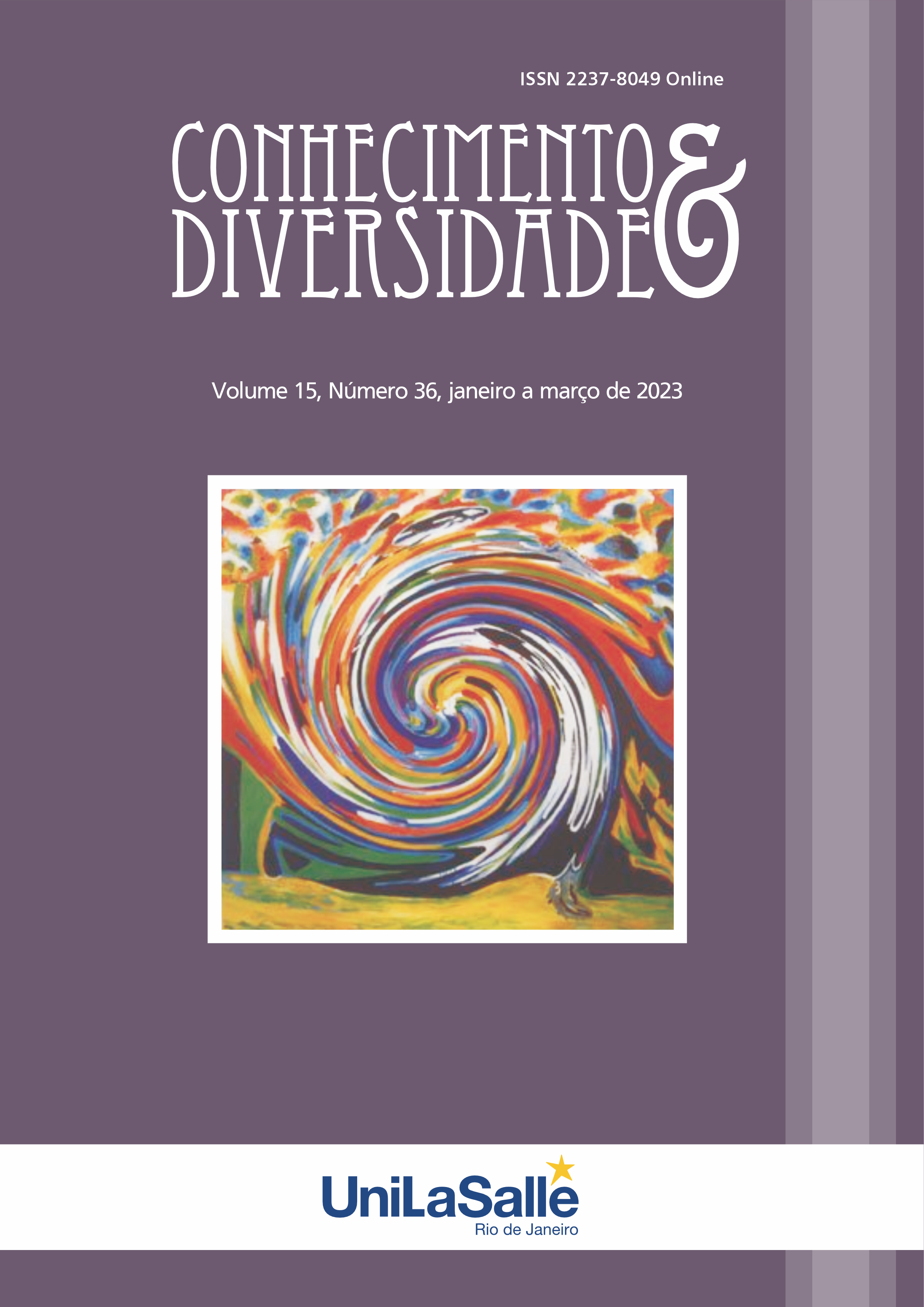O PAPEL DAS UNIVERSIDADES SAUDITAS NO ENCONTRO DO EXTREMISMO ELETRÔNICO ENTRE OS JOVENS UNIVERSITÁRIOS DO PONTO DE VISTA DOS DOCENTES E ALUNOS
DOI:
https://doi.org/10.18316/rcd.v15i36.10983Palavras-chave:
preventive and educational role, new extremism, modern technology, university studentsResumo
O presente estudo teve como objetivo identificar o papel das universidades na conscientização e prevenção do extremismo eletrônico do ponto de vista de professores e alunos. Os resultados do estudo demonstraram que o papel das universidades em abordar o problema do extremismo eletrônico entre os estudantes universitários do ponto de vista dos membros do corpo docente e dos alunos foi moderado. Os domínios do papel das universidades na abordagem deste fenómeno foram alcançados da seguinte forma: o domínio do papel preventivo das universidades na resolução do problema do extremismo eletrónico entre os universitários ocupou o primeiro lugar na média média, o domínio do papel de sensibilização das universidades na abordagem do problema do extremismo eletrônico entre os universitários ocupou o segundo lugar na média média, e o campo do papel educacional na abordagem do problema do extremismo eletrônico entre os universitários ficou no terceiro lugar na média média. O estudo concluiu apresentando uma proposta sugerida para ativar o papel preventivo, de conscientização e educacional das universidades no enfrentamento do extremismo eletrônico
Referências
Al-Ghamlas, B. (2022). The impact of communication networks in spreading extremism and terrorism (in Arabic). Journal of the College of Education. Al-Azhar University in Cairo, 2(191), 150-198.
Al-Maghthawi, A. (2020). Activating the role of social networking sites in confronting intellectual extremism from the point of view of experts. Journal of the Islamic University of Educational and Social Sciences, Islamic University of Madinah, 1(1), 381-454.
Al-Moselhi, N. (2018). A proposed program from the perspective of general practice in social work to prevent university youth from cyber terrorism crimes. The annual international conference of the Faculty of Social Work, Helwan University, Cairo, March 31-April 1, 2018.
Al-Omari, A. (2014). The role of security culture in preventing extremist ideology in Saudi society. Master Thesis, College of Social and Administrative Sciences, Department of Sociology, Naif Arab University for Security Sciences.
Al-Rawi, B. (2012). The role of social networking sites in change / a theoretical approach. Media Research Journal, 8(18), 94-112.
Al-Salem, F. (2022). Social networking sites and intellectual extremism, a study on a sample of Kuwait University students. The Egyptian Journal of Media Research, 10(79), 611-643.
Al-Shammari, M. (2016). A proposed strategy to educate Kuwaiti youth about the dangers of terrorism and intellectual extremism. Arab Journal of Social Sciences: Arab Foundation for Scientific Consultation and Resources Development, 3(9), 17-45.
Al-Shehri, A. (2018). Factors leading to the increase of intellectual extremism and professional methods to reduce it. Doctoral Dissertation, King Saud University, Riyadh, Kingdom of Saudi Arabia.
Al-Shehri, F. (2007). Electronic extremism on the Internet, an analytical vision. Information Technology and National Security Conference, Riyadh 11-24/11/1428.
Hassan, A. (2017). The role of social networking sites in spreading extremist ideology. European Center for Counterterrorism and Intelligence Studies.
Mohamed, A. (2019). Electronic extremism and the formation of public opinion, a study of the role of universities in prevention and treatment. Arid International Journal of Humanities and Social Sciences, 1(1), 136-153.
Omar, M. (2021). Professional intervention in the way of organizing society to develop women's awareness of the dangers of extremism and terrorism. Journal of Studies in Social Work and Human Sciences, 1(53), 145-180.
Qirat, M. (2017). New Media and Cyberterrorism: Mechanisms of Use and Challenges of Confrontation, Al-Hikma Journal for Media and Communication Studies. Treasures of Wisdom Foundation for Publishing and Distribution Journal, 8(9). 10-36.
Shehata, G. (2019). Social service mechanisms in confronting terrorism and extremism for peace and development. Alexandria, Modern University Office.
Yadak, S., Al-Khawtrah,A.,& Al-Asefa, S. (2023). The level of awareness of the phenomenon of extremism and its relationship to irrational ideas and perceived self-concept among a sample of Qassim University students. Journal of the Faculty of Education, Al-Azhar University, Cairo, 1(197), 62-94.
Downloads
Publicado
Edição
Seção
Licença
Copyright (c) 2023 Mervat Azmi Zaki Abdelgwad

Este trabalho está licenciado sob uma licença Creative Commons Attribution 4.0 International License.
Conforme recomendado pelo o Public Knowledge Project, a RCD adota para seus artigos uma licença CREATIVE COMMONS: Atribuição CC BY 4.0.
Esta licença permite que outros distribuam, remixem, adaptem e construam sobre o seu trabalho, mesmo comercialmente, desde que lhe dêem crédito pela criação original.
Esta é a licença mais adequada oferecida.
Recomendado para a máxima divulgação e uso de materiais licenciados.



